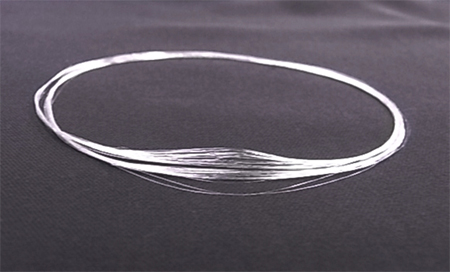Apologies for the sparse posts as I just finished this month’s Tecnon OrbiChem Bio-Materials newsletter, which was published yesterday.
Here are the headlines for this month’s Bio-Materials newsletter:
- Ethylene/Polyethylene
SABIC will produce renewable second generation PP and PE from waste fats and oils
- Glycols
Acme Hardesty is now selling bio-based PEGs made from sugarcane bagasse
- Polyethylene Terephthalate
Anellotech has begun producing kilogram quantities of bio-BTX
- Polyamides
US import of sebacic acid for Q1 2014 are up 18% compared to a year-ago
- Butanols
Global Bioenergies is running its 10 ktpa pilot plant in France to produce oxidation-grade isobutene
- Epichlorohydrin
AkzoNobel and Solvay have partnered with Ernst & Young to track and quantify the use of bio-based ECH in AkzoNobel’s paints, coatings and other applications
- Butanediols
INVISTA uses bio-BDO from BASF to produce its Lycra® spandex
- Succinic Acid
BioAmber announces its first succinic acid take-or-pay contract with PTT-MCC Biochem
- Polyols
Bayer MaterialScience will invest in a 5 ktpa CO2-based polyols production unit in Germany
- Fatty Acids
- Solazyme’s 100 ktpa algal oil facility in Moema, Brazil, is in start-up
- Fatty Alcohols
Supply of C8-10 alcohols remains very tight, worldwide
- Glycerol
US glycerine imports for Q1 2014 are up 69% compared to a year ago.
- Polylactic acid (PLA)
Cellulac has produced the world’s first (D-) lactic acid from lactose whey feedstock
To view sample or subscribe please click here
There are a couple of recent news that I will post soon but for now let’s start with this Gevo’s announcement. The company said it is selling para-xylene (PX) derived from its renewable isobutanol to Toray, one of the world’s leading producers of fibers, plastics, films, and chemicals.
PX is a primary raw material for the manufacture of polyester, polyethylene terephthalate (PET). The other component of PET is monoethylene glycol (MEG), where a bio-based alternative is now being used in Coca-Cola’s PlantBottle. According to Coca-Cola, around 8% of the company’s PET plastic bottles in 2012 contained PlantBottle technology. The company has distributed more than 15 billion PlantBottles since 2009.
PET has the largest global market share of all synthetic fibers and is also used in plastic bottles, films, and as a polymer for many other applications.
Gevo’s bio-PX was sold under a previously announced offtake agreement with Toray. Toray also provided funding assistance for the construction of Gevo’s PX demo plant at its biorefinery at South Hampton Resources in Silsbee, Texas, where Gevo also produces other hydrocarbon products such as renewable jet fuel and renewable iso-octane. Toray expects to produce fibers, yarns, and films from Gevo’s PX, for scale-up evaluation and market development purposes.
Gevo said it will recognize revenue associated with both the sale of the PX, as well as the initial funding assistance provided by Toray for the project. Gevo actually need to deliver a minimum quantity of isobutanol-based PX to Toray by April 30, 2014 because it will have to refund Toray $1 million by May 31 if it failed to do so.
It also has to pay Sasol shortfall fees if the company is not able to supply Sasol with certain minimum quantities of isobutanol, which will be used as solvents.
Gevo has also received support from The Coca-Cola Company for the development of its renewable PX technology. Research and development support was provided by The Coca-Cola Company under a previously announced Joint Development Agreement.





